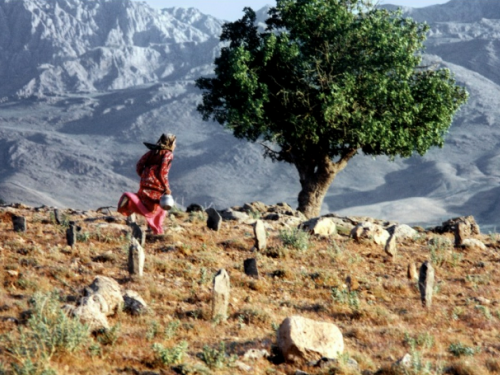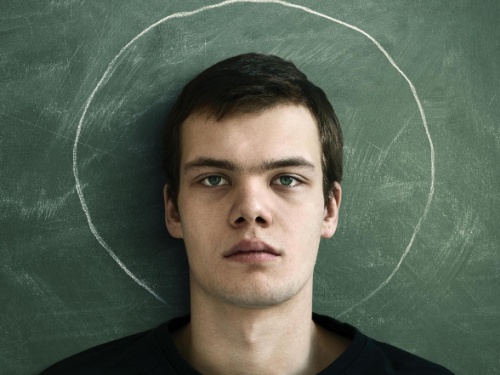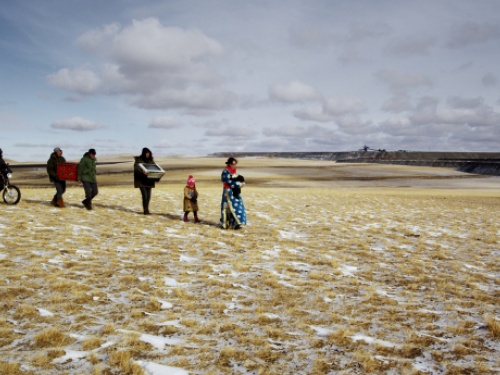Last Year in Marienbad
ICA Film and Cinema Co-ordinator Nico Marzano presents Alain Resnais's Last Year in Marienbad (1961), this month's free Members' Screening at the ICA.
As a measure of how modern Alain Resnais' cinema is, his latest film Aimer, boir et chanter (AKA Life of Riley, 2014) was awarded the Silver Bear during the last edition of the Berlinale, with a special mention stressing that his was 'a film that opens new perspectives to movies'.
One of the fathers of the Nouvelle Vague, Resnais recently passed away at the age of 91. For this reason and more, I decided to programme Last Year in Marienbad (1961) as the feature for the ICA monthly Members' Screening. No words can fairly describe what a masterpiece this film is. The first time I saw it was a few years ago at the Irish Film Institute in Dublin and I clearly remember how mesmerised I was leaving the theatre on that night.
Set in a sumptuous hotel in Central Europe, the story focuses on a man attempting to persuade a woman to keep her promise made a year ago to leave her abusive husband and run away with him. With a precise yet deceiving organisation of space and time, Resnais transforms reality into a dream-like world, where it is reduced to mere appearances and a game of mirrors and glances. At the time, the film won the Golden Lion at the Venice Film Festival in 1961.
Born in Vannes, a Brittany town, an only child of two middle-class parents, he approached movies very young. At fourteen he made his first short film and at nineteen he moved to Paris where he started to enter the world of cinema, getting a small role in the film Les visiteurs du soir (1942) by Marcel Carné. In fact for the French master, all the teachings come from the set: he directed the feature Ouvert pour cause d'inventaire (1946, lost film) with Gérard Philipe, he also became an editor and assistant director for a film by Nicole Vedres, Paris 1900 (1947). After twenty documentaries on artistic subjects, among others Van Gogh (1948) which won an Oscar and Guernica (1950) which connects the works of Picasso to the horror of the bombing of that Basque town, Resnais makes his debut with his first real feature in 1959, Hiroshima Mon Amour.
So in the wake of the Nouvelle Vague, to which Resnais never totally adhered, he shoots Hiroshima Mon Amour, a pacifist film set in Japan which tells the love story between a French actress and a Japanese architect. Two years later came Last Year in Marienbad, which among other things still represents a complex experiment in narrative deconstruction.
Always politically motivated with his films, in 1974 he realises Stavisky, a re-enactment of financial and political scandals of the Third Republic through the biography of Alexandre Stavisky starring Jean-Paul Belmondo. In 1977 he shoots his only film in English, Providence: a labyrinthine hall of mirrors in which the ghosts of the imagination and subconscious are playing with reality. The film investigates the relationship between an author and his literature and won seven Césars (the French Oscars). The interest in psychological issues is back in My American Uncle (1980), a philosophical comedy starring Gerard Depardieu which was awarded the Grand Prix at Cannes Film Festival the same year.
In the 1980s, his relationship with his actors becomes paramount. Resnais creates a working group composed of Sabine Azéma (his new girlfriend after his divorce from Florence Malraux), Pierre Arditi, André Dussolier and Fanny Ardant with whom Resnais involved in many of his subsequent films from Life is a Bed of Roses (1983) to Same Old Song (1997).
Alain Resnais’s long career has always been accompanied by prizes and awards: BAFTA, a Silver and Golden Lion, two Silver Bears, three César Awards up to his recent accolade for his last 'oeuvre' Aimer, boir et chanter.
This article is posted in: Articles, Film, Members News
Tagged with: Nico Marzano, Alain Resnais, Members





